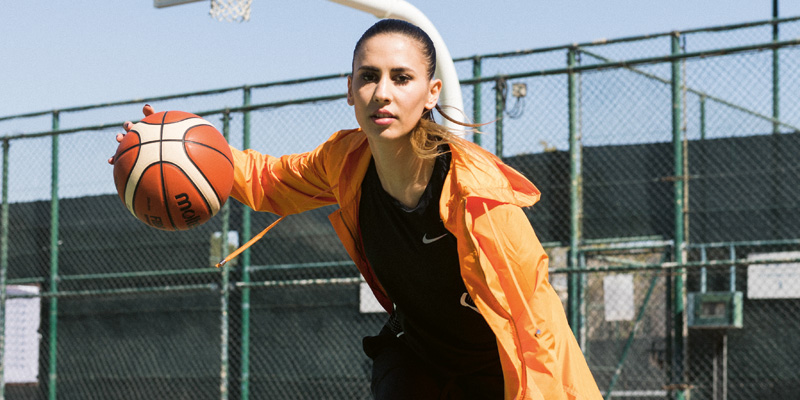Known for her killer three-pointers and nicknamed the ‘sniper,’ Lama Moukaddem is in a league of her own.
“It’s funny to talk about yourself,” says Lama Moukaddem, one of the finest shooters in the women’s Lebanese Basketball League. She is feeling momentarily self-conscious.
“When we were young we used to copy my brother,” she says, quickly dismissing that hint of unease. “Whatever he did we’d follow. So when he started playing basketball at the beach, we did too. That’s how it started. And in Lebanon everything is so open. It’s so easy to play.”
Read:
Nora Attal and Leena Al Ghouti help Farfetch say hello to the Middle East
This is how Dubai’s Palm Jumeirah looks from space
It is a week before Lama’s shoot with the photographer and director Kevin Couliau and she’s feeling remarkably relaxed, considering what’s currently at stake. It is crunch time for Al Riyadi, the Beirut team she has been playing with for the past seven years, with both the league and cup titles within their grasp. Yet there is no outward sign of doubt from Lama. Just an unblinking sense of self-belief.
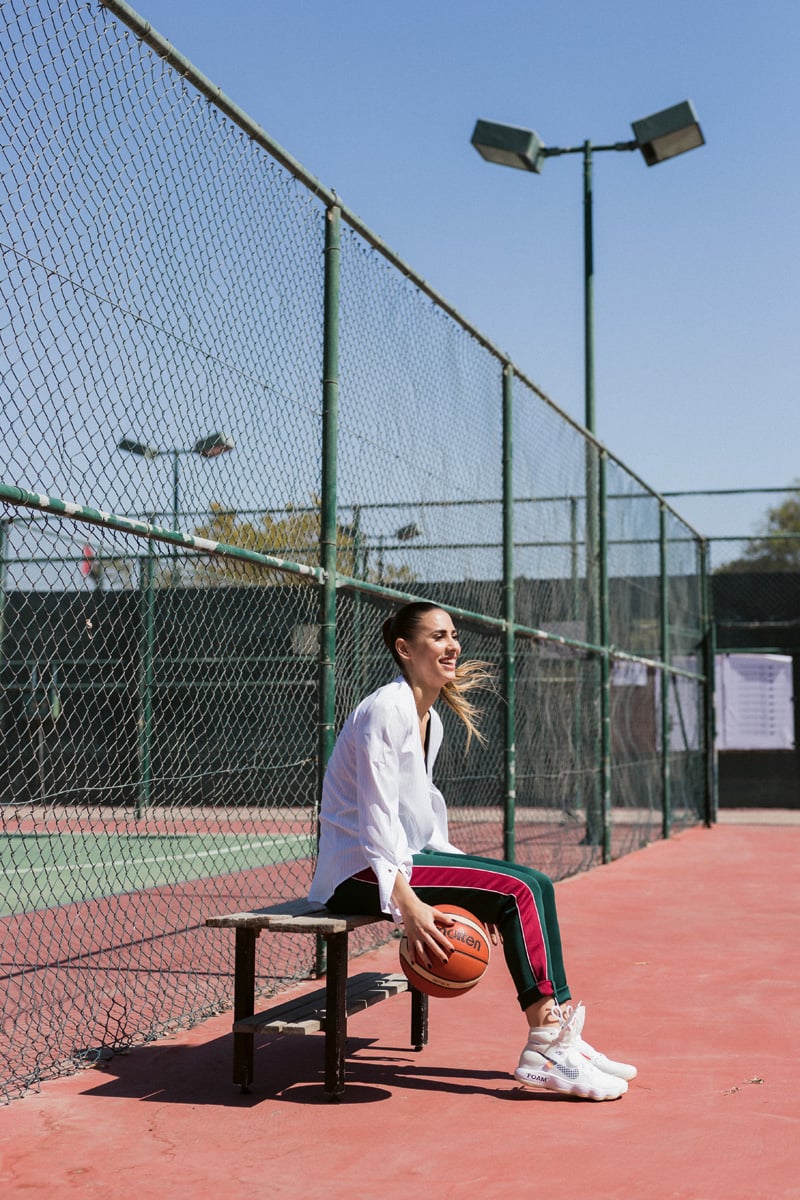
“Basketball is a mental game, especially for a shooter,” she says. “I was always motivated to be better. To show everyone that I can get to where I am and even be the best. My hard work, my talent, my skills and my mental toughness are what brought me here.”
Confident and committed, Lama cuts an impressive figure. She stands at five feet nine inches tall, is 27, and goes by the nickname of the ‘sniper’. She was named the best three-point shooter in West Asia two years in a row, was the best shooter in the women’s Lebanese Basketball League last year, and is an all-star game best three-point shooter. Not bad for a young woman from Tripoli who began playing basketball at the beach with her brother and sister.
“I was never a shooter at my old club. I was the point guard. The play maker of the team,” she says. “I would drive to the basket and create for others. But when I moved to Riyadi there was already a point guard there so I needed a different role: a shooting guard, like a combo guard, where I could do everything on court. I could be a threat through my shooting and through my flashing game.
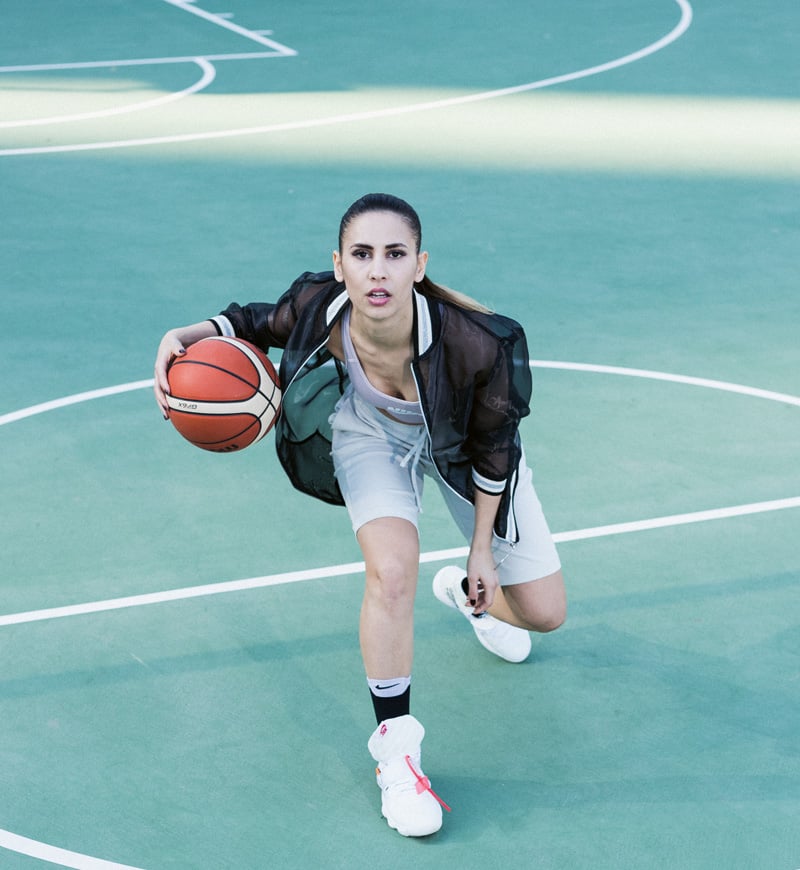
“I worked a lot on my three-point shots. At that time I didn’t have a job, so instead of sitting home and chilling I would go down to the court and practice. This is how you become a shooter. Even now I still have my alone time where I do my own thing and practice my shots. It takes extra work, extra time. You have to be motivated to go every single morning.”
That willingness to do more is telling. She works at the United Nations every week day between 8am and 4pm, reports for the Lebanese news station LBCI three or four times a week, helps her cousin as a wedding planner and has responsibilities as a brand ambassador for Asics and New Balance. Basketball practice is every night between 8 and 10pm, plus there are the games, which this season included participation in the Eastern European Women’s Basketball League for the first time.
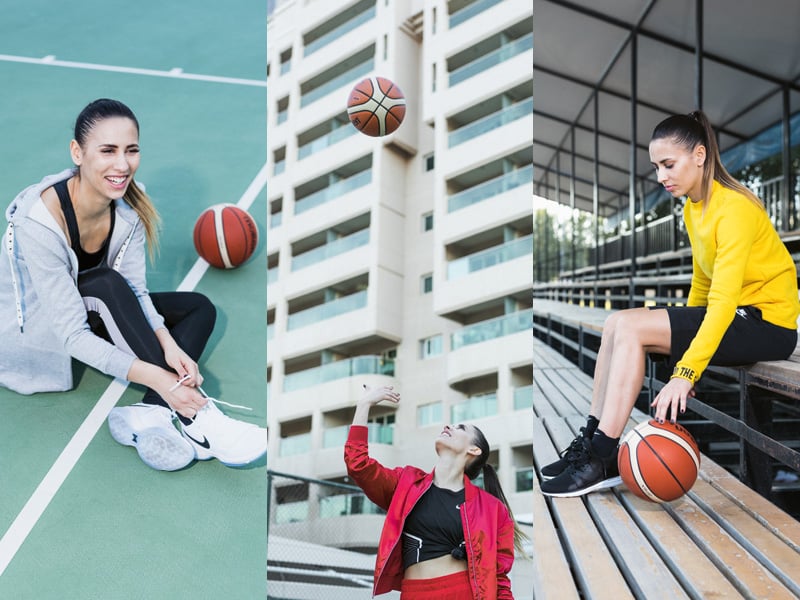
“We reached the final eight of the Eastern European Women’s Basketball League and just getting to that stage was amazing,” she says.
“We won games by just one or two points. It was a struggle, we practiced a lot, we were committed, but we had no life. I’m getting married in August and I’ve made no preparations.
“But when you live in Lebanon you have to be busy all the time. People appreciate it when you do a lot of stuff. The day that it’s not busy I get bored,” she adds, dismissing any talk of exhaustion or fatigue. “I’m the energetic type, so I love this. I can’t have a day off and actually just sit all day.”

Couliau, a basketball documentarist and founder of the Asphalt Chronicles, has dedicated much of his professional career to capturing the essence of the game. From Manila and Dakar to Paris and Cape Town, he has documented the beauty of the sport.
For Lama, who moved to Lebanon from Canada with her family when she was nine, much of that beauty lies in memory. Boys and girls playing together at the beach in Tripoli; her father attending every game without fail; her mother driving everywhere that was required. Now there’s the camaraderie and ambition.
“Of course there have been challenges, but those challenges make you stronger and more independent,” she says. “They make you more disciplined in what you do. We had to be mature at a younger age, more than anyone else. This is how you build your character and how you build yourself. How you be the person you want to be.”
Read:
Hailey Baldwin’s best looks are in Middle Eastern designers
A journey to the Middle East with Louis Vuitton’s new fragrance
In many ways Al-Mouttahed, Lama’s first club, mirrors Lebanon’s relationship with women’s basketball. Formed in 2001, from the outset it had a women’s team, with basketball played by women in the country since the early days of the sport. In fact, the national team joined the International Basketball Federation as far back as 1947, while Al-Riyadi’s women’s team was formed in 1965.
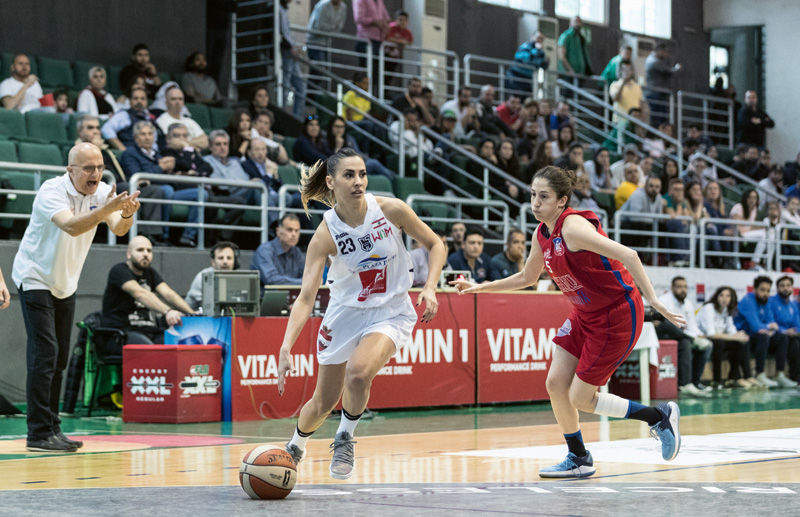
The country’s 15-year civil war brought all play to an end but the sport was resuscitated in the early 1990s. Since then the women’s game has progressed remarkably well, with the Arab Club Women’s Championship now dominated by Lebanese teams.
Although Tunisian teams monopolised the championship in the 1990s, in 2002 Hekmeh BC became the first Lebanese team to win. The country has dominated the women’s game ever since, with Al Riyadi winning the title twice in 2014 and 2015. Homenetmen Beirut are the current champions.
Although Lama has won four domestic league titles with Al Riyadi, that sense of determination and ambition shows no sign of waning. Perhaps that’s why it’s possible to detect a palpable sense of disappointment when discussing the future of women’s basketball in Lebanon.
“It has reached its peak and is going backwards,” says Lama, who was on both her school and college teams. “The younger generation is not as dedicated, not as committed, not as passionate about the game. They don’t want to work hard.
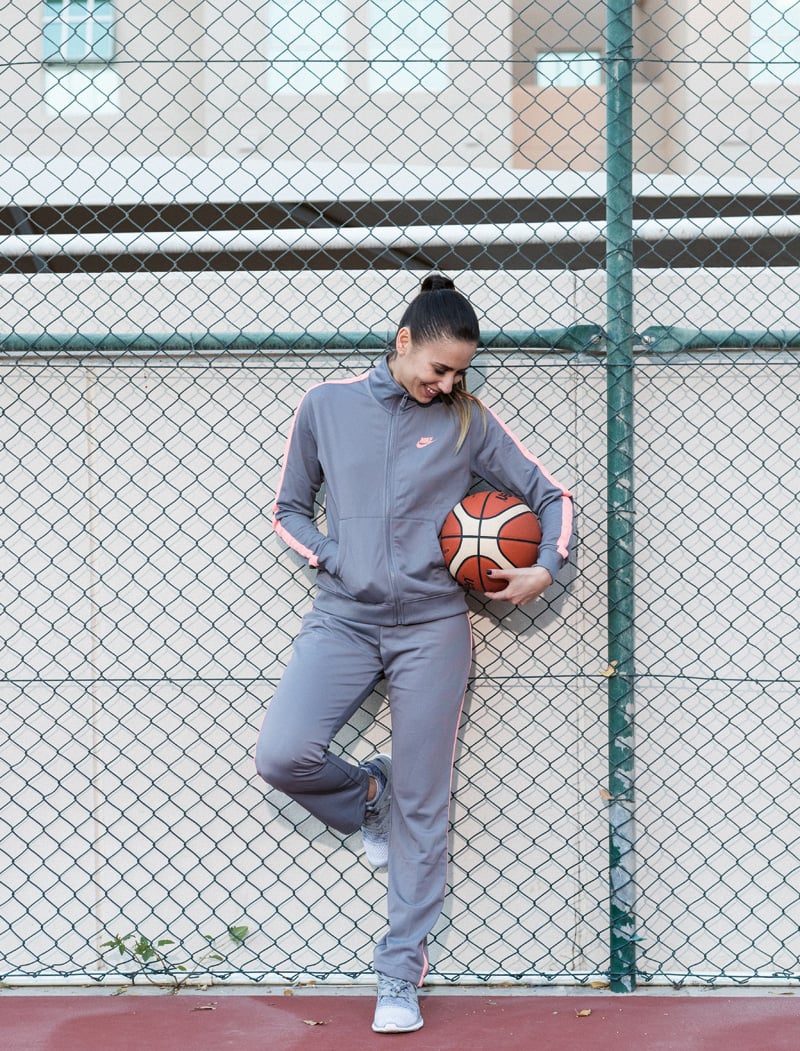
“And the younger generation is not exposed to the sport. In Lebanon they only care about the men’s league. The men’s league is broadcast on TV and even we, who are in the first division and have accomplished so much, are not broadcast every single game. Only the finals are broadcast.
“This league has to grow through commercials. Sponsors will not come to a team if there’s no TV coverage and nobody knows about them. The media should be playing a huge role in the women’s league and it’s not.
“I realise that the generation that’s coming through is not like us. We didn’t have cell phones and social media. Girls are focussing on the less important stuff. I used to be on the court from 10 or 11 in the morning until midnight, playing around, playing basketball, playing volleyball.
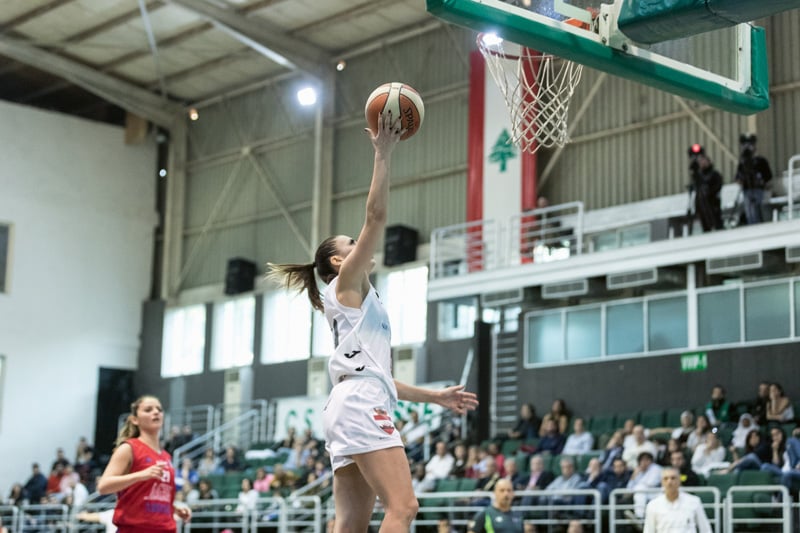
“The generation now isn’t like that. They care about social media, they have phones, it’s different. I don’t want to generalise, I’m sure there are people that are like us, but I feel the majority aren’t.”
Is there a solution?
“More should be done at a lower level so that those who want to learn can be in competition and improve,” she replies. “Why not have camps and involve us? I would love that extra work. Use us to help these kids grow and become more disciplined and powerful.”
Although she refers to him more in the sense of her own personal struggles, Lama talks of her coach at Al-Mouttahed, Nazir Saoudi, as an example of the inspiration young women need. “He was like a father and best friend,” says Lama. “He was someone who took us from the fourth division all the way to the first division. He had a goal, had a mindset, and we reached it. I knew how much he believed in me as a person and as a player. He always pushed me to be the best and had a goal for me.”
Saoudi died in 2010 at the age of 33.
Images: Kevin Couliau
Words: Iain Akerman
Styling: Carmel Gill
Wardrobe: Nisnass









